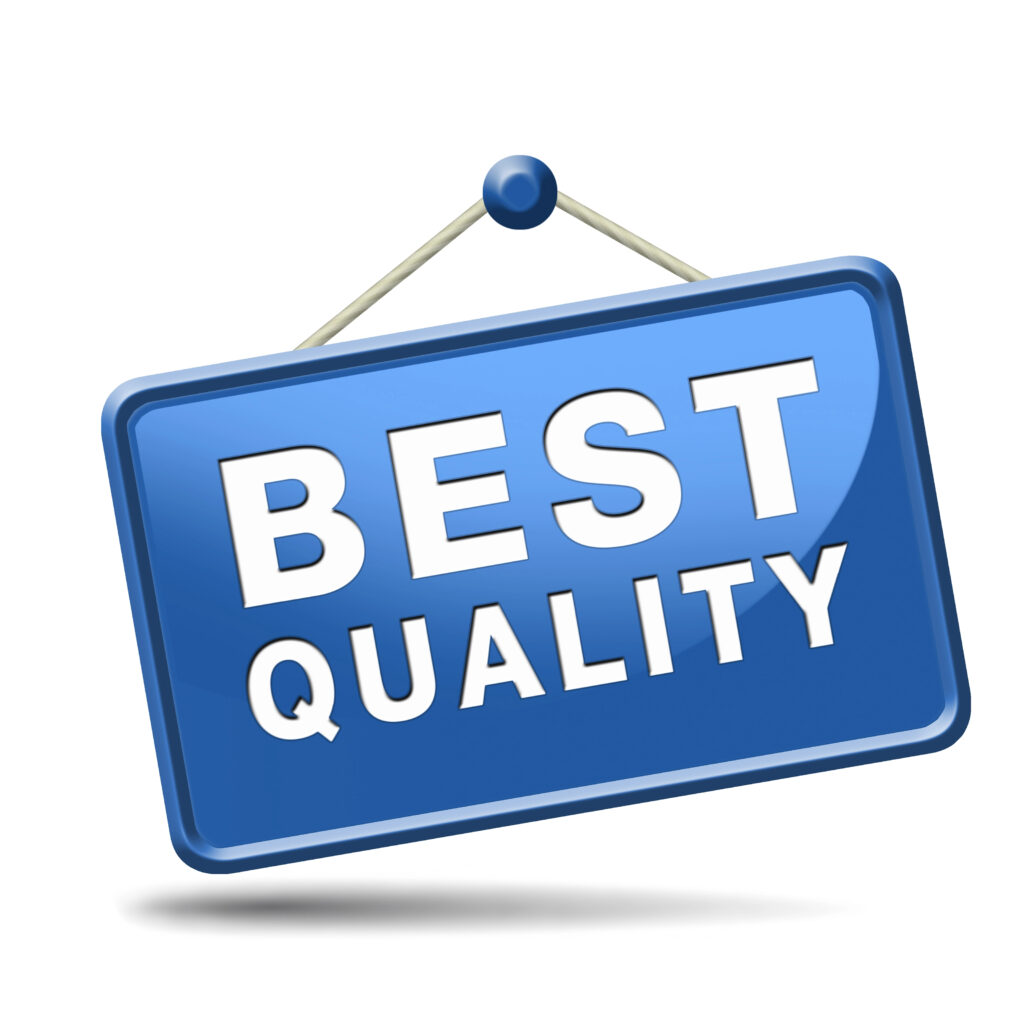 Like most consumers, you probably don’t mind spending a little more when you know something is of the highest quality. You want to ensure the product you spend money on is top caliber and adheres to standards assuring this. If you manufacture products, your business should produce the same expectations as big brands, as the resulting customer loyalty brings revenue.
Like most consumers, you probably don’t mind spending a little more when you know something is of the highest quality. You want to ensure the product you spend money on is top caliber and adheres to standards assuring this. If you manufacture products, your business should produce the same expectations as big brands, as the resulting customer loyalty brings revenue.
Achieving and maintaining product quality is at the heart of business success.
What Is Product Quality?
The quality of a product or service measures how well it meets the needs of those who buy it. Many factors contribute to its caliber, including material, manufacturing methods, and adherence to regulations. It concerns how well the item meets industry standards.
Reliability is another important factor determining a product’s performance compared to industry standards. Service life and features also contribute to its quality. The manufacturing sector rates quality according to various standards, including ISO, where a numbered code shows which criteria the item meets.
Why Product Quality Matters
You may wonder if consumers don’t just want the best price. It’s not about bargains but rather about value for money. Product quality and retail price determine the best value. You must provide the best possible offerings for your business to make a name in your industry. Quality ensures your company name ranks with the industry’s best.
Consistently delivering high-quality products ensures return customers and helps you avoid lawsuits, recalls, and returns. You solve customers’ problems, and they rely on your brand to provide reliable solutions. Product quality builds a relationship of trust.
How Product Quality Standards Work
Various quality standards apply to different products. Knowing what to adhere to is vital to ensure it meets all market and legislative requirements. Most items should meet their respective ratings from the International Organization for Standardization (ISO). According to its website, the ISO is “an independent, non-governmental international organization. It brings global experts together to agree on the best ways of doing things.” Each standard has a number, so a product with an ISO 9000 rating has met all manufacturing quality standards and best practices for production.
Quality standards help a business track and perfect its manufacturing process to ensure optimal efficiency. This is possible because of the best production methods. Products manufactured in an ISO 9000-certified facility are reliable and offer a long performance life.
The ISO reviews and improves each quality standard every five years to ensure they enforce the latest laws and procedures.
The business owner must understand the value of the ISO system, which is not merely about keeping the customer happy. ISO 9000 ensures companies follow proven strategies and conform to legislative requirements. It’s more than a standard — it’s a roadmap to success.
Once you have set your quality standards and your product hits the market, your next feedback mechanism is the consumer. Their complaints, warranty returns, and calls to the customer service department help identify problems. From there, you can use this information to reverse engineer your quality control for manufacturing processes to meet customer expectations.
Aspects of Quality Management Methods
Different quality standards determine whether a product will meet expectations. Something that doesn’t satisfy them won’t secure further market interest. Consider cars that have an electrical fault and a resulting recall. This can tank the manufacturer’s reputation and sales.
Each business’s quality management system determines how strictly its products, production methods, and processes adhere to ISO standards. These methods help align the company with its products and customers.
A business quality management system:
- Evaluates customer requirements
- Considers business leadership, departments, and employees
- Explores new and existing production methods
- Consults suppliers and industry leaders
- Gathers feedback from customers for continuous improvement
Types of Quality Management Standards
Meet the set quality standards. Simply saying your product is the best isn’t enough to get a certificate. The ISO issues certification for ISO 9001 only. However, an ISO 9001 means your business already meets most of the ISO 9000 family of requirements.
Some small to medium enterprises struggle to implement ISO standards due to managerial and staff issues. Something as simple as high absenteeism can negatively impact quality management and benchmarking.
Some other quality standards your business may need to maintain include:
- ISO 14000 Environmental Management Systems Standards concerns a business’s impact on the environment. To meet this, your company should observe environmental laws and regulations (https://www.iso.org/standards/popular/iso-14000-family) and manage production methods to minimize pollution.
- ISO 22000 Food Safety Management Systems Standards governs the food supply chain industry. Note that the ISO/AWI 22000 will replace the ISO 22000 as soon as legislators amend the relevant standards.
- ISO 45001 Occupational Health and Safety Standards is about reducing workplace risks and creating safer working conditions.
Final Product Quality Insights
A business is only as successful as its happiest customer. Ensure yours produces solutions for consumer pains and doesn’t disappoint expectations. Use the ISO ratings to help steer your quality management systems and plan refinement and growth goals to ensure your company exceeds market expectations.


